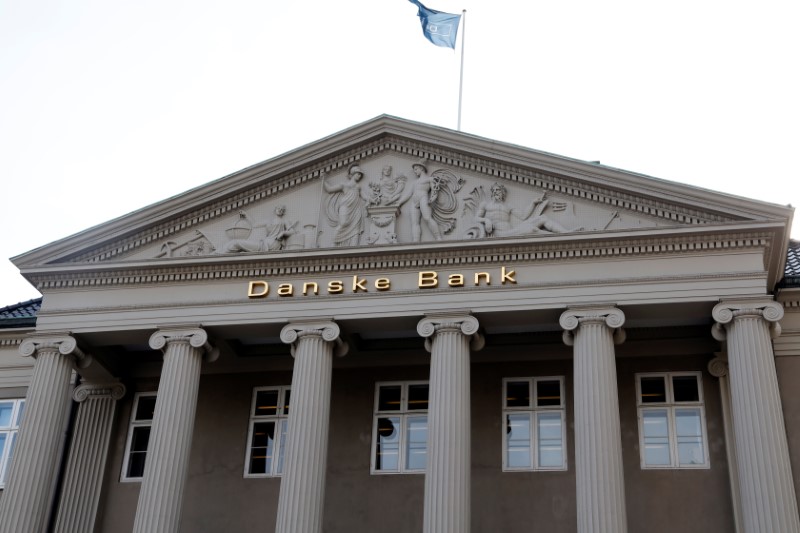TALLINN (Reuters) - Estonian authorities have expanded their investigation into alleged money laundering through Danske Bank's (CO:DANSKE) local branch to cover transfers of up to $2 billion, the Estonian prosecutor said on Thursday.
Widening of the investigation in Estonia adds to pressure on Danske Bank , as the lender and its investors await a potentially much larger fine from U.S. authorities for its involvement in one of the world's biggest money laundering scandals.
"We are investigating more than 10 cases with a total amount of up to $2 billion," said a spokeswoman for the prosecutor general.
The prosecutor said it was previously looking into suspect money flows worth $300 million relating to two separate cases.
It declined to comment further on the status of those new cases, but said it was working together with a number of countries, including the United States.
Danske, Denmark's biggest bank, admitted in 2018 that suspicious payments totaling 200 billion euros ($223 billion) from Russia and elsewhere flowed through its branch in Estonia, triggering worldwide probes.
"We of course continue to cooperate with the authorities and make ourselves - and the knowledge we have - available to the investigations," Danske said in a statement on Thursday.
Danske, which was thrown out of Estonia and has said it would also exit the other Baltic states and Russia, also repeated an earlier statement saying it "should never have had the now closed portfolio of non-resident customers in Estonia".
In 2018, Estonian authorities apprehended 10 former employees of the local Danske branch on suspicions of having facilitated a flow of dirty money through the branch.
Shares in Danske have lost more than half of their value since money-laundering allegations against the bank gained pace, but analyst Thomas Eskildsen at Handelsbanken said Thursday's development was "marginal" in a broader context.
"It is a possible fine by the U.S. authorities that worries investors," he said.

Shares in Danske were trading up 0.56% at 1028 GMT.